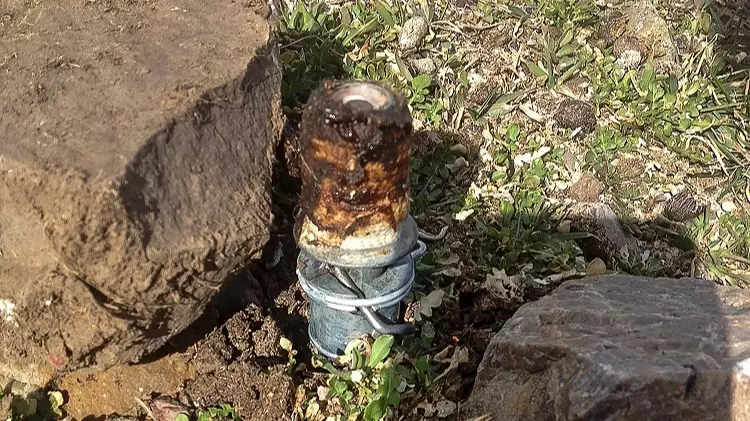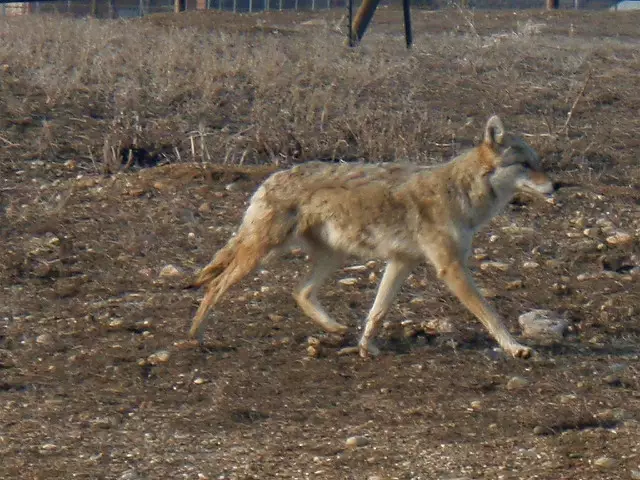
Wildlife conservation groups in the US are calling for a ban on predator-killing devices commonly known as cyanide bombs.
The devices are embedded in the ground and resemble water sprinkler heads. Animals are attracted to them with bait and then sprayed with cyanide when they are close enough. They are used to kill coyotes, foxes and wild dogs, purportedly to address conflicts with livestock.
However, cyanide bombs pose risks to the public of accidental injury, or even death.
"Cyanide traps are indiscriminate killers that just can't be used safely," said Collette Adkins, an attorney and biologist at the Centre for Biological Diversity. "We're not fooled by the feds' ridiculous suggestion that bigger warning signs could somehow keep cyanide traps from hurting people, pets and imperilled wildlife. A permanent nationwide ban is the only answer."
Advert
The centre has petitioned the US Environmental Protection Agency to ban the devices.
Officials say the devices killed about 12,500 coyotes in 2016, predominantly in Western states.
However, environmental groups argue that cyanide bombs killed around 200 dogs between 2010 and 2016, as well as injuring a handful of people.
In March, a 14-year-old Idaho boy was hospitalised after a run in with one of the traps. Canyon Mansfield was playing with his yellow Labrador retriever, Casey, near their home when he bent down to pick up what he thought was a sprinkler head on the ground. This caused the device to go off, spraying him and his dog with the toxic substance.
"Canyon said there was a bang like a bomb," said mother Theresa Mansfield, "then an explosion of an orange substance that covered him and Casey, who was writhing in pain on the ground before he died right in front of Canyon."
Tragically, Canyon's dog was killed. The boy said that he didn't realise what was happening at first.
"He just stayed on the ground mumbling,' Canyon told the Idaho State Journal.
"I thought he was playing with his toy, but I saw the toy a couple yards away from him... So, I called him again and got really scared.
"I sprinted toward him and landed on my knees and saw this red froth coming from his mouth and his eyes turning glassy and he was having a seizure."
It emerged later on that the cyanide bomb had been placed near the family's home by Wildlife Services, an arm of the US Department of Agriculture (USDA), which is targeting coyotes in the area.

Wildlife Services are using the devices to target coyotes. Credit: Ariel Matzuk (Creative Commons)
Advert
"These devices are only set at the request of and with permission from property owners or managers," the agency said. They are 'spring-activated' and 'not explosive devices,' according to a Wildlife Services spokesman.
Canyon's sister took issue with the statement and took to Facebook to dispute it.
She wrote: "The USDA's statement regarding the horrific incident that happened to my family yesterday is both disrespectful and inaccurate.
"The USDA intentionally refers to the brutal killing of our dog as a 'take' to render his death trivial and insignificant. They also claim that the killing of an unintended victim is a rare occurrence, but this is entirely untrue.
"In fact, this issue is nationally recognized due to the lack of selectivity of cyanide bombs, and there have been many reported incidents in which unintended animals and people have been targeted."
Advert
Sources: AP, The Daily Mail, Idaho State Journal
Featured Image Credit: PATopics: Environment, Animals